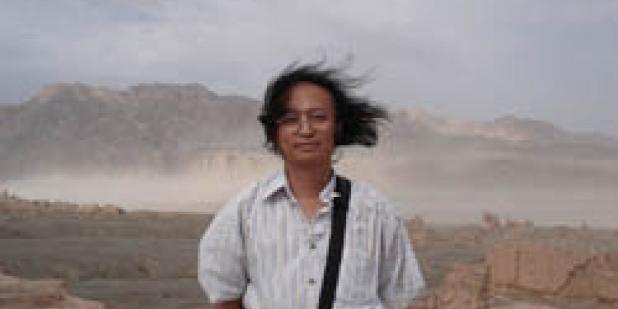Join us for a free one-day workshop for educators at the Japanese American National Museum, hosted by the USC U.S.-China Institute and the National Consortium for Teaching about Asia. This workshop will include a guided tour of the beloved exhibition Common Ground: The Heart of Community, slated to close permanently in January 2025. Following the tour, learn strategies for engaging students in the primary source artifacts, images, and documents found in JANM’s vast collection and discover classroom-ready resources to support teaching and learning about the Japanese American experience.
Buddhist Art in 10th Century Dunhuang: The Politics of Patronage and Image-making
The Ho Center for Buddhist Studies at Stanford University presents a discussion with Qiang Ning on the politically motivated pictorial programs at the Buddhist site of Mogao in the local/historical context of 10th century Dunhuang.
Where

Qiang Ning, Connecticut College
This presentation examines the politically motivated pictorial programs at the Buddhist site of Mogao in the local/historical context of 10th century Dunhuang. The interactions among art, religion and politics will be analyzed with case studies of the cave-shrines built by the local government and elite clans. Why did local people at Dunhuang build Buddhist cave-shrines in the 10th century? How did they represent their socio-political ideology on the walls and alters? Did the art works actually function as they wished? These and other questions will be answered with visual and textual evidence in the presentation.
Ning Qiang worked at the Dunhuang Research Academy for 7 years as a researcher of Buddhist art in the Gobi desert in northwestern China before going to Harvard University for his Ph.D. degrees in art history in 1991. He has been teaching Asian art at Yale, San Diego State and the University of Michigan since 1997 and now he is the Chu-Niblack Associate Professor of Asian Art at Connecticut College.
Featured Articles
Please join us for the Grad Mixer! Hosted by USC Annenberg Office of International Affairs, Enjoy food, drink and conversation with fellow students across USC Annenberg. Graduate students from any field are welcome to join, so it is a great opportunity to meet fellow students with IR/foreign policy-related research topics and interests.
RSVP link: https://forms.gle/1zer188RE9dCS6Ho6
Events
Hosted by USC Annenberg Office of International Affairs, enjoy food, drink and conversation with fellow international students.
Join us for an in-person conversation on Thursday, November 7th at 4pm with author David M. Lampton as he discusses his new book, Living U.S.-China Relations: From Cold War to Cold War. The book examines the history of U.S.-China relations across eight U.S. presidential administrations.




